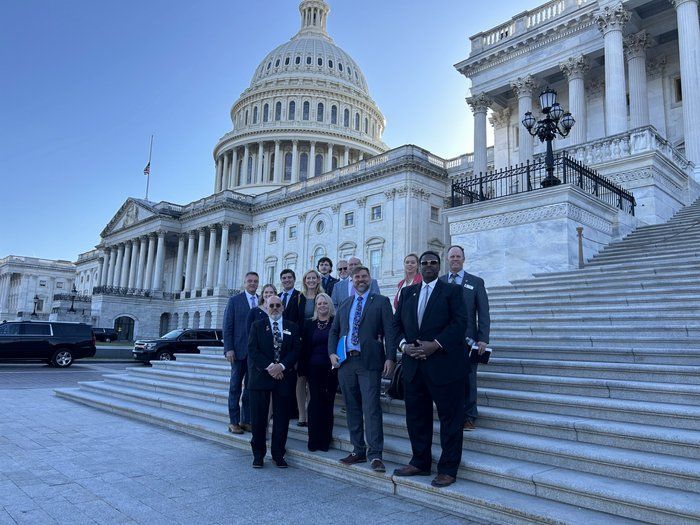IL Corn Farmers Make Their Voices Heard in D.C.

The Illinois congressional delegation understands Illinois corn farmers and the downturn in the agriculture economy a little bit better this week after a meeting with IL Corn last week in Washington, D.C. (D.C.). During our time in D.C., we met with 17 congressmen and over 50 partners, agencies, embassies, and non-government organizations. Our farmer leaders advocated through discussion by providing facts and personal stories. During our visit, we were joined by staff members and farmers from WI Corn, MI Corn, KY Corn, and MO corn.
In addition, five Grassroots Orientation to Washington DC (GROW) applicants applied and were chosen to join IL Corn to learn more about how IL Corn leads in D.C. The GROW program builds leadership skills in farmers not already connected with IL Corn and helps them understand the opportunities for farmers to advocate for their industry in Washington, D.C. The program encourages active participation in ICGA.
The policy priorities for the 119th Congress focus on a farm bill with mandatory base acre update, fuels with higher blends of ethanol, a tax bill to preserve 45Z, and Inland Waterway Funding to support transportation.
Farm Bill
Congress must act to help farmers compete in the global marketplace by allowing farmers to access critical inputs and supporting a positive trade policy agenda that is mutually beneficial to farmers and their end customers.
- Crop Insurance: Crop Insurance is the primary risk mitigation tool for Illinois farmers providing a valuable safety net. It allows farmers to choose their preferred level of coverage to insure against weather and price related risks. Protecting and improving affordability for Mid-West corn farmers of this program is a top priority for IL Corn and our members.
- Conservation: IL Corn encourages Congress to support voluntary and innovative conservation programs that result in Illinois family farmers having sustainable competitiveness. Farmers need programs that help transition to more resilient, conservation-smart practices by providing necessary technical and financial assistance.
Ethanol
Ethanol demand is declining while corn production increases, leading to financial losses for farmers. Policies like the year-round E15 waiver, the Next Generation Fuels Act, and incentives for Sustainable Aviation Fuel (SAF) must be advanced.
Trade
Congress must act to help farmers compete in the global marketplace by allowing farmers to access critical inputs and supporting a positive trade policy agenda that is mutually beneficial to farmers and their end customers.
Lock and Dam
The annual net economic benefit generated by the Corps’ Civil Works mission is estimated to be $89 billion, which equates to a return of about $12 for every dollar expended.
Illinois corn farmers worked together to advocate for themselves by discussing with congressmen about their lives on the farm and how current laws affect their livelihoods. IL Corn encouraged our congressmen to sign the E15 bill and thanked the current cosponsors on the bill. IL Corn will continue to advocate in Washington, D.C. We encourage our members to join us in our advocacy efforts through our political action committee (PAC) and call-to-actions (CTAs).







